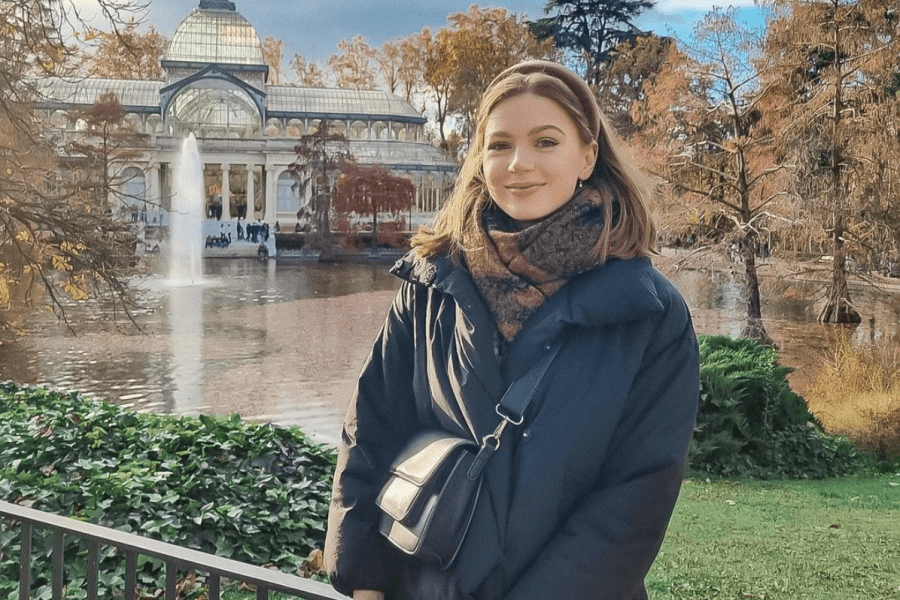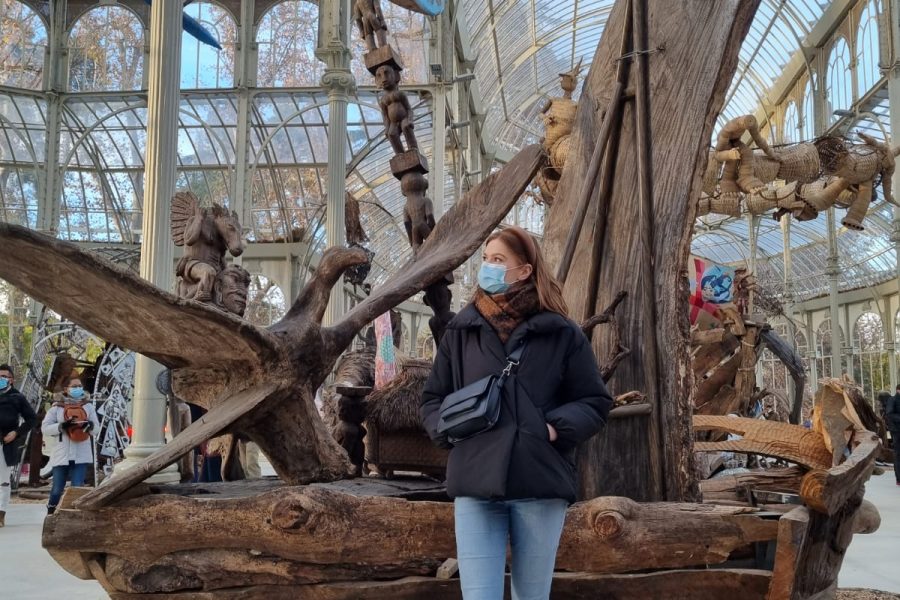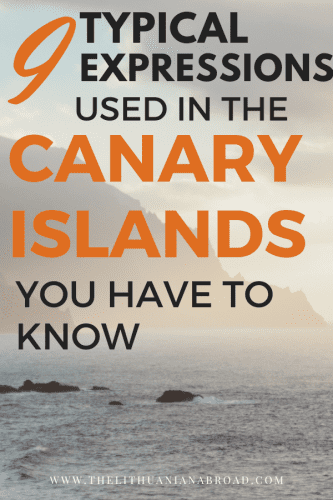
We went to Tenerife in September 2021 for our friend’s wedding and we completely fell in love with the island! Tenerife is an island that is almost three hours away by plane from the Spanish mainland. It is famous for its black sand beaches, the year-round warm temperatures. But, here comes the surprise. Did you know that the Canarian islands have their own dialect? And that some expressions are only used on the Canary Islands and nowhere else? I am really interested in learning about local dialects and Spanish slang so I researched typical expressions used on the Canary Islands. Do you want to learn Canarian Spanish as well? Here, I will explain the typical words that “Canarios” use!
Other blogposts that could interest you:
- What to do in one week in Tenerife
- Spend a day in Puerto de la Cruz
- The most beautiful beaches in Tenerife
- Tenerife Bucket List: 14 Things you MUST do during your stay
- Where to stay in Tenerife, guide for all budgets
Learn Canarian Spanish with these typical expressions:
1. La Guagua
There is no way you can stay in the Canary Islands without hearing this common Canarian expression at least once: La Guagua. And do you know what it is? Guagua means “bus” in the Canary Islands and is widely used. Definitely the most important expression on the Canary Islands. It emerged thanks to Canarians bringing this expression back from Cuba. What initially was “wagon”, turned into “Guagua“.
By the way, the public transport in Tenerife is fantastic and very affordable. Do not be scared to get on the guaguas and explore the island! It is so worth it. Timetables and further information about public transport on Tenerife can be found on this website.
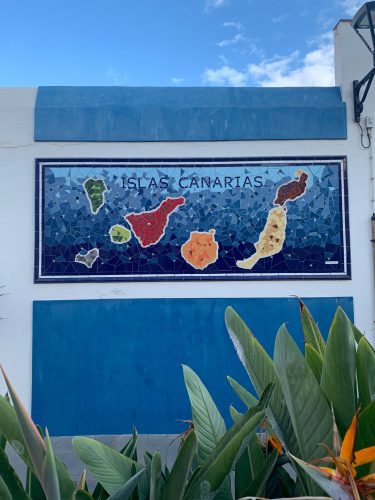
2. Cholas
If you do not know what “cholas” are maybe you have heard the equivalent word “chanclas” used on the Spanish mainland. “Cholas” is the Canarian expression for flip-flops which are essential on the Canary Islands! The Canary Islands are very humid and warm the whole year round so light footwear is very important.
I am not quite sure where this expression comes from. But the Canary Islands have a big influence from South America. And there are some regions there, that also use the word “cholas” for flip-flops. And the Canarian slang is known for using some words typical in South America.
3. Garimba
It is so funny to me how different Carian slang to the Spanish mainland is. They really use completely different words than on the Spanish mainland, and “garimba” is one of those. A “garimba” is Carian slang for a small beer, which on the Spanish mainland would be a “caña”.
There is nothing better than ending a hot day with a “garimba“. If you do not like beer, maybe the next Canarian expression I talk about will be a good choice for you!
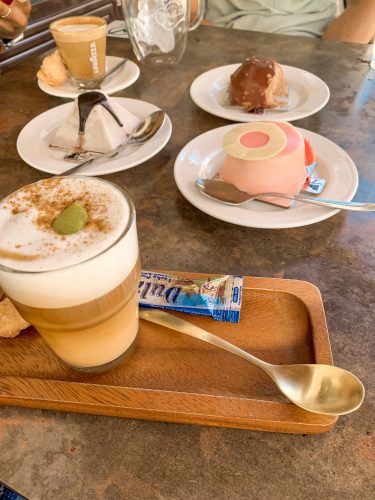
4. Barraquito
If you love coffee and have a sweet tooth (like me!) you will be very excited about a Barraquito! A Barraquito is a local Canarian coffee variation with condensed milk, liquor 43, cinnamon, and a touch of lemon. It sounds very sweet and it is.
There are many different coffee variations here on the islands, but this is the most common one. What surprised me was how affordable it is. I stayed in Tenerife for two weeks and I have never paid more than 1,80 Euros for a good barraquito. Try and decide for yourself if you like it!
5. Papas Arrugadas with Mojo
So this is one of the dishes I am very excited about. So excited, that I had in every day for a whole week. But it’s so good!
“Papas” are potatoes, which are the main ingredient of Canarian cuisine. On the Spanish mainland, they are called “Patatas”. Papas Arrugadas are cooked potatoes with a salty crust. They are served with mojo, which is a sauce made out of garlic, parsley and cilantro. Highly addictive and so tasty! You really cannot leave the Canarian islands without trying Papas Arrugadas first.
6. Guachinche
Did you ever wonder where you could order “Papas Arrugadas con Mojo”? Typically, in a “guachinche“. A “guachinche” is a restaurant that offers homemade Canarian food. Those are not fancy places with expensive furniture and an expensive atmosphere. Quite the opposite. A “guachinche” is an affordable restaurant, that usually is family-owned and serves quality food. Do not forget to try local restaurants during your trip!
7. Panza de Burro
“Panza de Burro” means “The donkey’s belly” in Spanish. No, it is not used for when you ate too much! “Panza de burro” refers to foggy weather and low-hanging clouds on the islands. Sometimes they are so low that you cannot even see the tip of the mountains on the islands. But beware, it does not mean that it will be a cold day! It is still very warm, even though you see “Panza de burro” in the mountains. This phenomenon is very common in the north part of Tenerife.
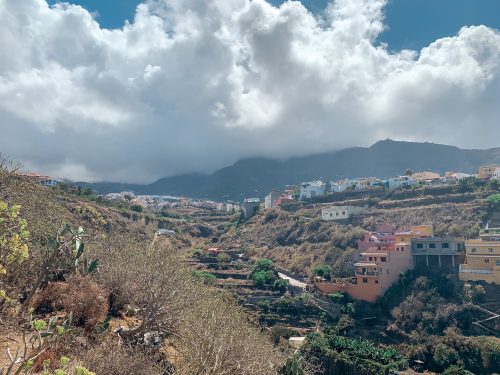
8. Chacho!
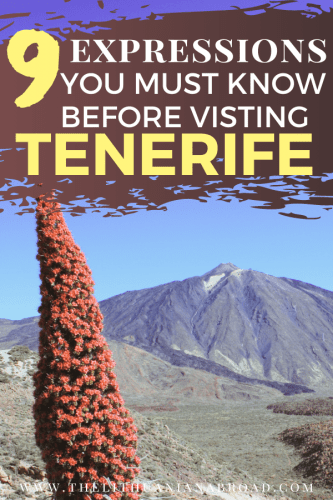
“Chacho” is the short form of “Muchacho” and Canarios use this expression at least 20 times a day. It could be the equivalent of “dude” or “wow”. Don’t forget that you use “Chacho” for boys and “Chacha” for girls. It could be used like “Chacho, can you pass me my jacket?”.
9. Mi niño / Mi niña
“Mi niño” (for men) and “mi niña” (for women) are expressions to show affection for someone. And they are even used for people you don’t even know personally. So if you are in the market and someone calls you mi niña, you just have to know that they are trying to be polite to you. And don’t think it is just used for young people or children. This expression is used for people of all ages!
So, were you able to improve your Canarian Spanish? I am sure there were some expressions you did not know about. Let me know in the comments if you can think of any more!


